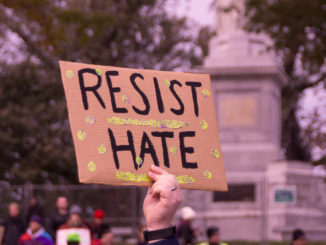
What We Can Learn From the LGBTQ Movement’s 50 Years of Achievement
Source: Waging Nonviolence
Despite pain, loss, disruption and grave threats, the LGBTQ movement — decade after decade — launched new campaigns for more advanced goals and won.Now that the LGBTQ movement in the United States has reached the half-century mark, what can activists learn from its story of struggle? Since polarization continues to deepen, this might be a good time to learn from a movement whose enemies once felt so panicked that some suggested gays be put in concentration camps to protect society from AIDS.
As a young man living in Philadelphia in the late ‘60s, cautiously coming out to friends, I was aware of demonstrations for gay rights at Independence Hall led by Barbara Gittings and others. I was too scared to join them. By then I’d already risked in the civil rights and peace movements, even in a war zone in Vietnam, but publicly coming out as gay seemed even scarier than getting seriously injured.





